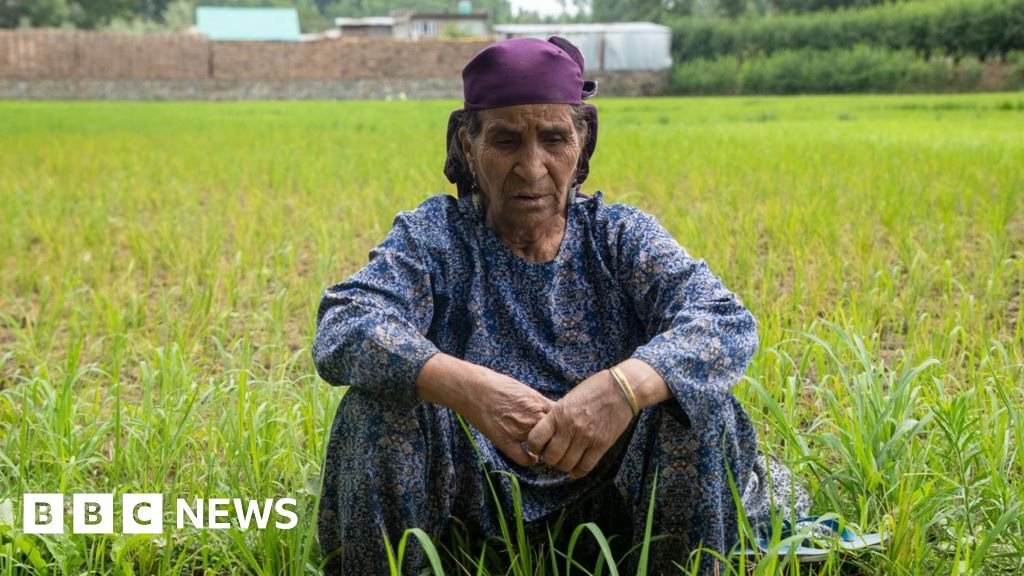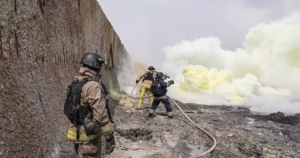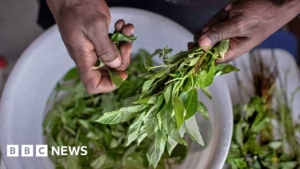An unrelenting heatwave has gripped Kashmir over the last few months, causing severe droughts and devastating impacts on the region’s agriculture and its people. Zaina Begum, a farmer in Indian-administered Kashmir’s Pulwama district, had been waiting for rainfall for over a month to save her paddy crop. However, when it finally rained, it was too late, as her land had completely dried up.
The region has been experiencing record-breaking temperatures, with the highest daytime temperature in 70 years recorded at 37.4C (99.32F) – at least 7C above the seasonal average. This has led to the shutdown of schools and colleges for two weeks, as authorities try to mitigate the effects of the heatwave.
Localized heavy rains have provided some temporary relief, but experts warn that temperatures could rise even further in the coming days. Changes in weather patterns have made it difficult for locals, who mainly rely on farming for their livelihood, to continue in the business. Many are struggling with the erratic weather, causing huge losses in crop production.
The BBC has reported that the maximum temperature in the Kashmir region rose by 2C between 1980 and 2020, indicating an average rise of 0.5C rise per decade. Glaciologist Muhammad Farooq Azam explained that warmer winters have led to reduced snowfall, while hotter summers have accelerated the melting of glaciers. This has disrupted the availability of water and poses risks to human health and crops.
Jasia Bashir, a professor at the Islamic University of Science and Technology, pointed out that despite contributing very little to global carbon emissions, the region is being severely impacted by climate change.
The construction of concrete buildings and the loss of trees due to deforestation and forest fires have exacerbated the issue. The region has also witnessed rapid urbanization, which has reduced the ability of the local climate to regulate naturally. Over the past five years, more than 600,000 trees have been cut down in Kashmir, identified as river encroachments.
Experts also raise concerns about the increasing use of air conditioners in the region due to rising temperatures. This has led to a vicious cycle, as the increased energy usage fuels further greenhouse gas emissions and further warming.
Kashmir officials have denied claims that environmental issues are being neglected, stating that the government is taking the problem seriously. However, farmers and residents urge for immediate action to prevent further devastation.
Source: https://www.bbc.com/news/articles/ckgdpnlg34ro








